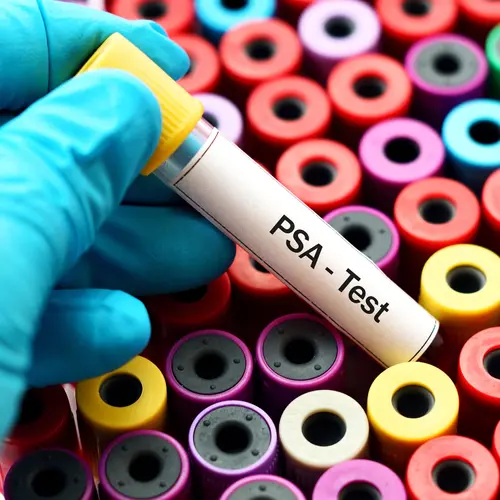When you’re diagnosed with prostate cancer, you might wind up with one looming thought: What do I do now? Here's a roadmap to guide you through the first part of your new journey.
Educate yourself. Prostate cancer is the most common cancer in men, so there's a lot of good information out there. The downside? There's a lot of good information out there. Take a breath. You don't need to read and digest everything right now. Most men with the disease have time to figure things out. Many prostate tumors grow slowly, so you might not need to make decisions right away. Get help from your doctor to figure out what you need to know now and what can wait. You'll feel calmer, and you'll make better choices.
Decide if you want treatment. Yes, "if." Because prostate tumors often grow slowly or not at all, they might not be harmful enough to need treatment. Some men decide -- with their doctors -- that "watchful waiting" for symptoms, and "active surveillance," keeping close track of the cancer with tests, biopsies, and regular doctor's visits, are better options than surgery, chemo, or radiation. Research has shown that these can be safe options for many men. If the tumor starts to grow or if you're not comfortable with "doing nothing," talk with your doctor about moving forward with treatment.
Start thinking about side effects. As prostate cancer treatments fight your disease, they can also cause other problems, like losing control of your bladder or trouble getting erections. Not all men will have these side effects, but you should talk about them with your doctor before you decide if and how you’ll treat your disease. The risks may steer you toward one treatment over another.
Pick the right doctor. Prostate cancer treatment is complicated. You need to have a health care team you trust and with whom you can build a long relationship. You will need to see a doctor who specializes in cancer or in urology or both. Here are some tips on how to choose the right one:
- Find a doc who has a lot of experience with prostate cancer. Usually, it will be a urologist.
- Try to talk with any doctors you are considering, either in person or on the phone. You'll get a better idea if they're the right fit for you.
- Work with your primary care doctor to find the right prostate cancer doctor.
Talk about it. Whether or not it’s true, men are known to keep their feelings inside. But if you've just learned you have prostate cancer, you may find it helps to talk about it. Some people find it easier to be open with someone they don't know well. If that sounds like you, try volunteer or professional counselors and other cancer survivors. When you feel ready to talk to your partner or family members, either now or later, keep these things in mind:
- Don't expect things to stay the same. There will probably be changes in your close relationships as you adjust to living with cancer.
- Make sure you give the other person a chance to express feelings.
- Be direct about what kind of support you need and ask what they might need. This also might change over time.
- Talk about things other than your disease. The interests you share and things you both enjoy can give you a break from stress and bring you closer together.

